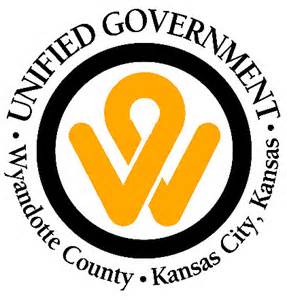Unified Government commissioners learned about a small unexpected windfall during a budget discussion on Monday.
UG Administrator Doug Bach told the commission that the UG will receive a one-time payment this year of $6.5 million for land revenues from Cerner and Sporting Kansas City. Plus, the UG will receive a penalty payment from the Hollywood Casino hotel of $1.3 million for 2014, $1.4 million for 2015, and an unknown amount for 2016, Bach said.
Added together, that is about $9.2 million the UG will receive, before the anticipated 2017 revenues come in from the Village West sales tax revenue bonds that are paid off. The Unified Government Commission met Monday in a lengthy special strategic planning meeting.
Originally, Bach said, the Cerner-Sporting KC money was to be spread out over 10 years, but the UG staff worked with Cerner to get the money paid back now. The $6.5 million was additional land payments that had not been budgeted for this year, he said.
The hotel penalty had been negotiated into a contract with the Hollywood Casino, and was put into the contract in case the casino did not want to build a hotel because of the market conditions, according to Bach. He said it will probably be a couple of years before the casino goes forward to build a hotel, but he is not adding the penalty amount to future budgets because it is uncertain – at any time the casino could go ahead with the project.
Bach presented recommendations from the UG staff on how to spend this increased amount of money.
For the casino hotel penalty funds plus an estimated increase in assessed valuation revenues, he proposed $2.8 million for employee compensation; radio project debt, $500,000; acquisition, rehab and demolition of property, $500,000; Fire Department SAFER grant (which is expiring), $300,000. These are annual expenses, according to UG officials.
Bach’s recommendations for the land payment funds were one-time payments: restoring the fund balance, $2 million; employee health fund, $2 million; workers’ compensation fund, $500,000; water pollution control fund, $500,000; Police Department body cameras, $500,000; and other capital equipment, $1 million.
They were all big-ticket items, and instead of waiting until 2017 to address them, the UG can start looking at them now, Bach said.
The UG is discussing replacing some of the funds that were borrowed in past years from the fund balance and some of the funds, according to UG officials.
The UG had a brief discussion about body cameras, with some commissioners supporting waiting until they had matching funding from the federal government, or waiting until they had enough money to fund enough cameras and equipment before starting the program. Bach described $500,000 as a “down payment” for the body camera program. Several commissioners expressed doubt about jumping in too early for this program.
Mayor Mark Holland said a public safety task force will present recommendations on June 4 at a commission meeting, and final decisions to be made at a later commission meeting. Some of those big-ticket items June 4 will be restoring the cadet programs, according to UG officials.
Among the other items discussed by commissioners, but not necessarily approved, were a fund for $30,000 for each commissioner to spend on projects in the district; creation of a park for disabled children and residents; an additional staff member for animal control; and a rewriting of the UG’s sign codes.
No one suggested using the $9.2 million to lower property taxes, although property tax reductions are on the long-range goal list. However, Mayor Mark Holland said that reducing property taxes for the 2017 budget would be the top policy recommendation, and the commission needs to decide how much it wants to reduce property taxes then.
There will be about $12 million in new revenue, he said, and some has been committed for fund restoration and employee compensation.
“We’re going to need a significant property tax reduction to come out of some of that money,” he said.
In some ways, the UG would be shifting some of the tax burden from property taxes to sales taxes as part of the long-term plan for 2017, he said.
No final decisions were made on the budget today. The meeting was to discuss strategic planning, and some changes would be likely to the ideas that were presented.
During the meeting, Commissioner Brian McKiernan gave a presentation about rehabilitating homes that are abandoned and deteriorating, increasing the property tax base, and demolishing vacant homes that are unfit. Several options would be available to the UG. The UG’s goal would be to stop the erosion of the tax base. There were some opinions on the commission that demolition has to be reduced, while there were other opinions that demolition needs to continue.
The presentation may be viewed on the UG’s YouTube channel as part of the May 11 special session.


